You can listen to the article. If it's more convenient for you, turn on the podcast.
In any crisis situation, people massively sweep buckwheat off the shelves in reserve — you can cook a lot of delicious things from it. But what if the crisis ends faster than we expected, and we are left with a bunch of bags of uneaten cereals? Here's how to put it to good use.
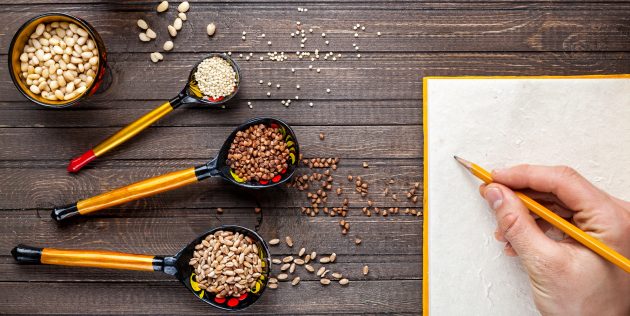
Make a sketch on a piece of thick cardboard, plywood or canvas on a stretcher. Then stick buckwheat and other cereals on this base using PVA glue. It turns out to be very interesting works. Most importantly, do not forget to varnish so that the seeds do not crumble.
If you do not have other cereals in stock, and it is boring to decorate paintings and other crafts with one buckwheat, paint it. This can be done in several ways: just scatter on the table and brush with gouache, soak in an aqueous solution with the same gouache or use food coloring.
With the help of buckwheat, especially painted in unusual colors, you can diversify your frames for photos, pictures and even mirrors. The principle is the same: stick the grains on the PVA, wait until it dries, and cover with varnish.
Fridge magnets can be decorated in a similar way. Cover the workpiece with PVA glue, sprinkle with colorful buckwheat, add other cereals. Use the resulting cute magnet to attach a to-do list to the refrigerator.
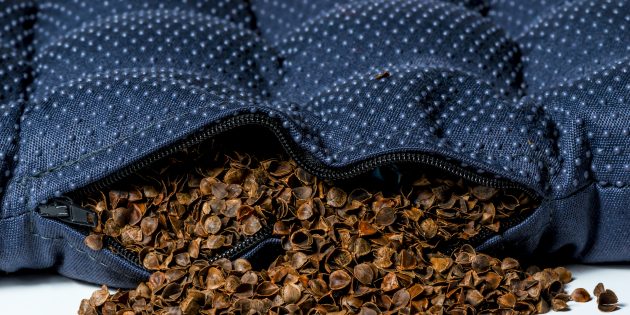
In general, traditionally in the countries of the East — in Japan, China, India — pillows were filled with buckwheat husk, that is, the husk from which the cereals are cleaned. But since you can't find it in stores, you can fill a pillow with ordinary buckwheat. However, it will turn out to be a bit harsh — orthopedic.
To do this, carefully calcinate the buckwheat in the oven at a temperature of 200 degrees, placing it on parchment on a baking sheet. Then wait until it cools down, and then stuff the pillow. It is better if the pillowcase is made of thick cloth.
Do not pour out the water that remains after washing the buckwheat. Let it stand for 1-2 days, and then water the indoor plants — the liquid contains silicon, magnesium, phosphorus and iron, which are useful for them.
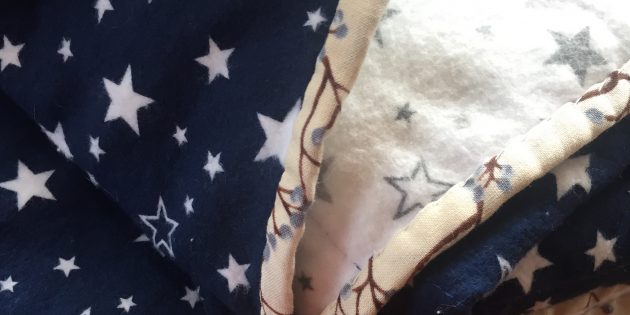
Weighted blankets use Do weighted blankets help with insomnia? / Harvard Health Publishing to combat stress and relieve insomnia. They usually weigh from 7 to 14 kilograms. To do this, you will need a duvet cover and a lot of buckwheat. Wash the grits, dry them, or better yet, pierce them. Then sew the duvet cover with large squares (for example, 10 by 10 centimeters), pouring a portion of buckwheat into each of them.
A more cunning way is to fill 15 small flat bags with cereal, sew several pockets on the inside of the duvet cover and place the bags in them. If necessary, the buckwheat bags can be changed.
Buckwheat keeps warm for a long time — sew it into a knitted bag and heat it in the microwave. If desired, you can drop lavender oil on a hot water bottle to make it easier to fall asleep. And it can also be placed under numb arms or legs and warm up joints.
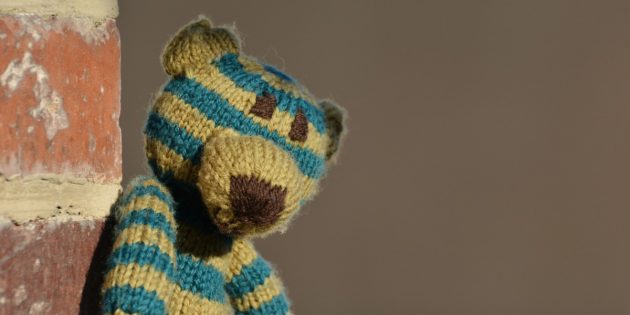
If there is no other filler at hand, then buckwheat is perfect. Sew the toy, pour the pre-calcined and cooled grits inside the fabric bag and place it inside. However, it will not work to wash it — but you can change the filler.
If desired, add some herb to the buckwheat ‑ lavender, melissa, dill, thyme, rosemary, sage, so that the toy smells good. It can be used to develop a child's fine motor skills or to knead yourself, as an antistress .If you know how to handle wood, make a rattle and put buckwheat in it. Or take a plastic core from a chocolate egg, pour half the grits into it and place it in some kind of toy. Just make sure that the child will not be able to get to the filler.
If you are a fisherman, you can use buckwheat to lure fish. She's not very popular, and for good reason. Buckwheat with garlic goes well with roach, crucian carp and tench.
Grind M. Zhukov. 300 skin care recipes grits in a blender, having received coarse flour. Then mix with a teaspoon of sugar and egg yolk. Apply to the face, massage, leave for five minutes. But keep in mind: doing this more often than once a week is not recommended.
Apply PVA glue to a glass or plastic bottle, sprinkle with buckwheat and cover with varnish. If desired, you can also add other cereals, twine or woolen thread and even pasta. Then place the flowers in this original jug.
Another option is to paint buckwheat in different colors, and then pour it in layers into a transparent bottle. It will turn out to be a pretty decorative element. It will be especially effective if you mix buckwheat with other cereals.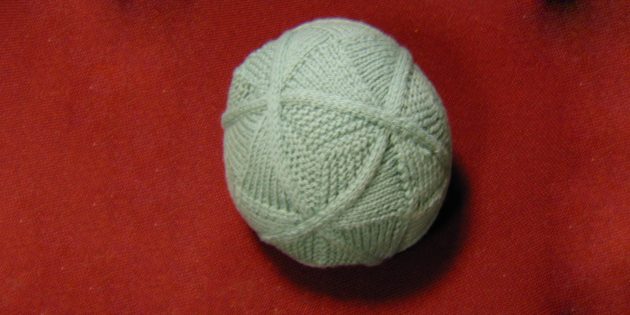
Sox is a simple ball game, as well as the name of this very ball. Your task is to throw it with your feet as long as possible until you drop it. Whoever holds out the most, wins. Sox is knitted from cotton thread and filled with grits. However, you can also use simply knitted socks with buckwheat. Hence, by the way, the name socks.
To do this, you will again need grits, PVA glue and varnish. Blow out the contents of the raw eggs with a syringe, and then decorate the shell with buckwheat. And you no longer have to paint them every Easter — you take out ready-made models for the holiday, and then put them away until next year.
Cut the sleeve from the toilet paper in half, cover the parts with PVA glue, sprinkle with buckwheat and, if necessary, cover with varnish. You can also decorate such a holder with various cords, beads and other elements. As a result, you will get an interesting accessory that you are not ashamed to put on the table.
After all, if all these creative ways seem like a waste of product to you, you can share buckwheat with your fellow pensioners or donate it to charities. So you will do a good deed, help people, and at the same time free up space on the shelves.